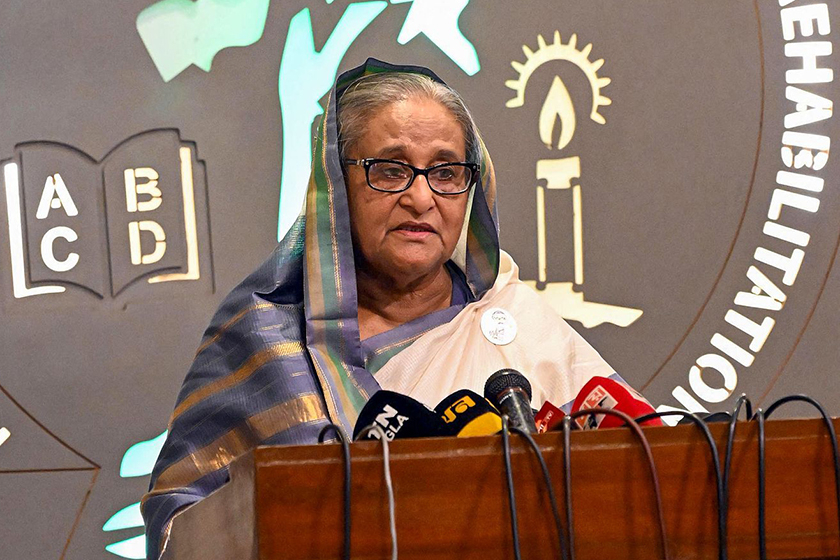
In recent years, the changes on the international political stage have often attracted attention, and the incident on August 5 when the Prime Minister of Bangladesh was forced to resign and flee to India has attracted widespread attention and heated discussions. This incident not only had a profound impact on the political landscape of Bangladesh, but also triggered a series of reactions in the region and even the world.
Bangladesh, a country located in the South Asian subcontinent, has always been striving to seek its own development and stability. However, the complexity of politics and the interweaving of interests make its internal situation often full of variables.
The cause of the incident can be traced back to the long-term contradictions and power struggles in domestic politics. On the political stage of Bangladesh, the differences between different political factions have gradually intensified, leading to a tense and confrontational political atmosphere. There are serious differences between the Prime Minister's political camp and the opposition in terms of policy formulation, economic development direction and social governance. These differences were not properly resolved within a certain period of time and eventually evolved into fierce political conflicts.
Economic problems have also exacerbated political instability to a certain extent. As a developing country, Bangladesh faces many economic challenges, such as poverty, unemployment, and inflation. In the process of economic development, problems such as uneven distribution of resources and widening gap between the rich and the poor have caused public dissatisfaction. Political factions often use these economic issues to attack each other in an attempt to gain more political support, which further exacerbates political chaos.
In this tense political environment, the opposition has continuously launched protests and demonstrations, demanding the prime minister's resignation. These activities have gradually escalated and evolved into large-scale social unrest. Social order has been seriously affected, economic activities have stagnated, and people's lives have fallen into difficulties.
Faced with the increasingly severe domestic situation, the prime minister's situation has become increasingly difficult. Under pressure from all sides, she was eventually forced to resign. After resigning, she had to flee to India for her own safety. This behavior not only marked the end of her political career, but also plunged Bangladesh's political situation into deeper uncertainty.
This incident has had a major impact on Bangladesh's political landscape. The power vacuum may lead to more intense struggles between political factions, reduced government decision-making efficiency, and difficulty in effectively implementing the country's development strategy. Internationally, this incident has also attracted the attention and concern of other countries. Regional stability is threatened, and neighboring countries are worried that the turmoil may spread and affect regional peace and development.
For India, the escape of the Bangladeshi prime minister has brought a series of complex problems. On the one hand, India needs to consider its own relationship with Bangladesh and avoid causing tensions between the two countries because of this incident. On the other hand, India is also facing pressure from the international community and needs to be cautious and fair in dealing with this issue.
From a broader perspective, this incident reminds us that a country's political stability is crucial to its development. Political turmoil will not only affect the country's economic development and social progress, but may also lead to people's suffering and regional instability. At the same time, the international community should also strengthen its support and assistance to developing countries and jointly promote global peace and development.
In short, the incident in which the Prime Minister of Bangladesh was forced to resign and flee to India is a complex and serious political issue. It reflects the cruelty of political struggles, the imbalance of economic development, and the fragility of social stability. We hope that Bangladesh can get out of the political crisis as soon as possible and achieve national stability and development. At the same time, we also hope that the international community can learn lessons from it and work together to create a peaceful, stable and prosperous world.

Below is the English translation of the text, with precise handling of political terms, consistent sentence structures, and preservation of the original’s analytical tone and logical flow:
Below is the English translation of the text, with precise …
On December 15 local time, Trump took the British Broadcast…
In recent years, the application of artificial intelligence…
According to Yahoo US media reports, the recent remarks of …
After 11 years of waiting in the deep sea, we finally have …
On December 17, 2025, the newly renovated American "Preside…